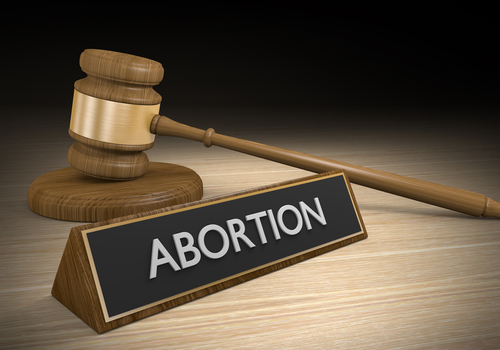Federal judges in Texas and Ohio block pandemic-related abortion bans

Image from Shutterstock.com.
Federal judges in Texas and Ohio have temporarily blocked abortion bans that were adopted in response to the COVID-19 pandemic.
The judges ruled after the attorneys general of Texas and Ohio told abortion providers that abortions cannot be performed under state orders to delay nonessential and elective surgeries. Exceptions were allowed when needed to preserve the life or health of the patient, the attorneys general said.
In Texas, U.S. District Judge Lee Yeakel of Austin granted a temporary restraining order Monday, report Courthouse News Service, the Texas Tribune and the Austin American-Statesman. The order expires April 13.
“The attorney general’s interpretation of the executive order prevents Texas women from exercising what the Supreme Court has declared is their fundamental constitutional right to terminate a pregnancy before a fetus is viable,” Yeakel wrote.
Yeakel ruled in a suit by Planned Parenthood and other abortion providers.
Texas Attorney General Ken Paxton said his office would seek “prompt appellate review” of the decision to make sure medical professionals have the supplies and protective gear they need during the COVID-19 pandemic.
In Ohio, U.S. District Judge Michael Barrett of Cincinnati issued a 14-day temporary restraining order Monday blocking the ban, report Cleveland.com and the Cincinnati Enquirer. Barrett cited a “fundamental constitutional right of access to abortions” and the likelihood of irreparable harm to patients who can’t obtain abortions.
“If a health care provider determines, on a case-by-case basis, that the surgical procedure is medically indicated and cannot be delayed, based on the timing of pre-viability or other medical conditions, said procedure is deemed legally essential to preserve a woman’s right to constitutionally protected access to abortions,” Barrett wrote.
Ohio Attorney General Dave Yost said the abortion ban was needed to make sure protective equipment was available for health care workers fighting COVID-19. He said in a statement that Ohio “will take the course of action that will most quickly achieve that goal—be it an emergency appeal, a trial on the preliminary injunction, a more specifically drawn order, or other remedy.”
Barrett ruled on a motion for an injunction filed in ongoing litigation over a state law that bars abortions after a fetal heartbeat is detected. Barrett has blocked that law as he considers the case.
Write a letter to the editor, share a story tip or update, or report an error.


